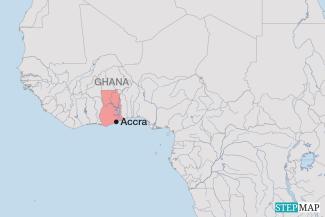Inclusion
Disabled people allowed to drive in Ghana

The country’s ministry of gender, children and social protection and the National Council of Persons with Disabilities (NCPD) unveiled a policy for training and testing disabled drivers. Now, persons with disability such as the deaf and physically challenged will be issued with a driver’s licence upon passing training and testing and meeting certain conditions prescribed by the authorities.
The Ghana national association of the deaf (GNAD) applauded the move as a major victory for the country’s disabled people. In their estimation, about 480,000 deaf and hard of hearing people qualify for the driver’s licence. “The launch of the policy is good news for the community of the deaf. It will provide a regulatory framework to test, train and issue driving licences for potential drivers with disabilities,” says Juventus Duorinaah, executive director of GNAD.
He sees the move as an outcome of several years of advocacy and says that the disability community is overjoyed as “another barrier to disability rights’ inclusion in Ghana has been overcome”. He adds: “It will also help law enforcement agencies to ensure road safety and encourage social inclusion.”
This historic decision, which follows years of exclusion that sparked relentless and passionate agitation, is a turning point in the West African nation’s commitment to securing equity for all. In Ghana, traditionally, a driving licence serves multiple purposes such as proof of driving ability and an identification document. With it, holders can access essential services like banking, using international money-transfer apps, among other multiple uses.
Over the years, disability advocacy and rights groups have applied intense pressure, until the government have caved and created the policy that will guarantee the inclusion of differently abled people. The policy demonstrates the commitment to the principles of respect for diversity and inclusiveness, non-discrimination, full and effective participation and disability mainstreaming.
This historic decision is consistent with Ghana’s Persons with Disabilities Act (715), the United Nations Convention on the Rights of Persons with Disabilities, and Ghana’s 1992 Constitution, which obligates the government to treat all citizens equally and with dignity.
Yaw Ofori-Debrah, the chairman of NCPD, says: “The world had evolved, and disability is no longer inability, we now live in a society that respect disability rights.” Disability-rights activists like Ofori-Debrah hope that the new policy will be implemented successfully by the concerned agencies and bodies. They also hope that the public cooperates with state agencies to guarantee road users with disability safety.
Whereas this is a good development, the road ahead is still long for the full inclusion of disabled people. In the Ghanian society, driving is often seen as a symbol of independence, pride and freedom, allowing people to go wherever they want. For disabled persons, it will require specialised driving assessments, vehicle adaptations and modifications and disabled driver training.
Dasmani Laary is a journalist in Ghana.
laarygna@gmail.com








